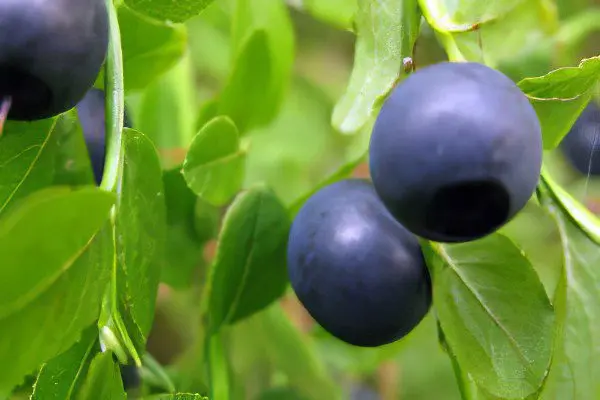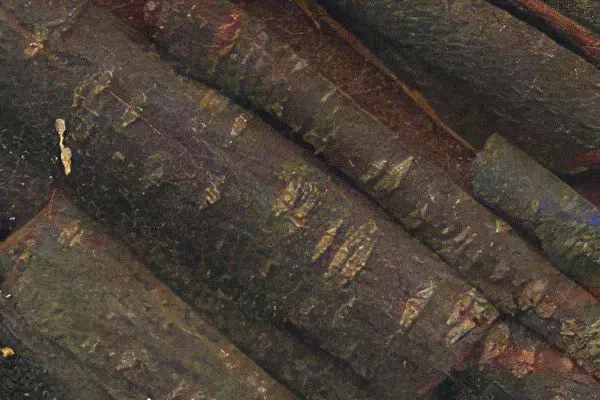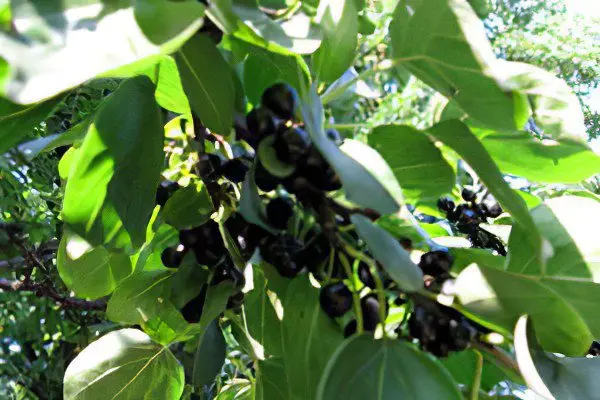Contents
Useful properties and use of the bark and fruits of the joster
Description of the joster

Joster is a beautiful three-meter shrub with protruding branches. While the bark of the plant is young, it has a silver-gray color, and then becomes brown-black. This shrub has glossy opposite leaves with small petioles and deep veins. On the edge of the ovate leaves are crenate-serrate.
In their axils there are four-membered flowers, collected in elegant inconspicuous umbrellas of a greenish-yellow hue. It is in the axils that later interesting rounded fruits develop, the size of which is no larger than a pea. Zostera blooms from May to the end of September. This common plant prefers dry sunny places in marshy and moist soils.
It can often be found at various fences and along ditches, as well as on forest edges and in thickets of tall shrubs. Ripe black fruits can be harvested from mid-August to the end of October. After harvesting, the fruits are dried in the open sun.
Useful properties of the joster
The main active ingredients of jostera are laxative derivatives of anthraquinone. It is indicated for prolonged constipation in adults and children. In addition, the fruits of the plant contain essential tannins, active pectins and flavonoids.
Zoster application
Dried joster fruits can be used to make delicious tea, syrup or mousse. You can also just chew the berries. To begin with, the fruits should be finely ground into powder. Syrup is recommended for young children as a mild natural laxative. To prepare such a medicine, you need to take 70 grams of fruit juice and mix with sugar, the amount of which is 130 grams, and then bring the mixture to a boil. Babies under one year old are prescribed no more than 3 tsp. syrup per day.
To prepare tea from joster, you need 2 tsp. dried fruits and 250 ml of water. Pour boiling water over the fruits, and after 10-12 minutes the drink should be filtered. It is recommended to drink such healing tea no more than once a day.
In homeopathy, this plant is used as a laxative and diuretic. Various homeopathic remedies are often prescribed for all kinds of liver diseases. Since the 16th century, joster was prescribed by ancient healers for the treatment of cancerous tumors. A special decoction of fruits, branches and bark, in addition to its laxative effect, had a beneficial effect on the mucosa in peptic ulcers.
Along with this, the plant was widely used to treat jaundice, gout, dropsy, rheumatism, and paralysis. It easily copes with chronic skin rashes, digestive disorders. Indications for use is reduced appetite. Fruit powder can be consumed on its own or added to food. Powder gruel is recommended for the treatment of acne. Due to the healing properties of joster, it is often prescribed for helminthiasis, menopausal disorders and dizziness, as well as for herpes rashes.
Joster bark

The unusual bark of the plant has a positive effect on the large intestine, helping to gently remove harmful impurities and solid feces. Such a mild laxative is prescribed for intestinal atony and chronic constipation. In addition, decoctions from the bark can quickly get rid of eczema. To date, the use of joster bark infusions is recommended for edema of both renal and cardiac origin, for gout, tachycardia, depression, cholangitis and hepatitis.
The bark of the plant is included in many carminative and diaphoretic fees. Often prescribed for menorrhagia, dysmenorrhea. To normalize the stool, you need to use a special infusion before bedtime. To prepare it, you need to take 10 grams of bark and insist them in a glass of water for 8-10 hours. Such a drink will help get rid of flatulence and serious metabolic disorders.
An amazing alcoholic tincture of joster bark is used for pyoderma, streptoderma, boils and other skin diseases. To prepare the product, pour 1 tbsp. l. dry bark 500 ml of alcohol. You need to insist the mixture in a dark place at room temperature for at least 10 days. Before each use of the tincture, it is advisable to shake it well. Three times a day, with a ready-made product, all affected areas should be lubricated until the epidermis layer is completely restored.
Joster fruits
Small fruits of the plant in the form of peas are used to treat various skin diseases. They can easily cope with carbunculosis and furunculosis. Zostera berries also cure dropsy, anemia. The main indications for use are various digestive disorders and diarrhea. Moreover, the unusual fruits of the shrub are considered an excellent anthelmintic.
To get rid of parasites, it is necessary to consume fresh berries no more than 15 pieces per day. Since, in case of an overdose, they can provoke quite serious poisoning. In ancient times, the fruits of this plant were also prescribed for fever. It has been proven that the seeds found in the berries are also active against leukemia.
For the preparation of a healing agent, 1 tbsp. l. pour the fruit with an ordinary glass of boiling water. Then boil the product for about three minutes, then insist in a sealed container for at least two hours. After straining, you can take half a glass at bedtime for ailments of the gastrointestinal tract. To solve problems with constipation, it is recommended to use 100 grams of infusion three times a day. This unique laxative will gently release the intestines from putrefactive processes.
Various decoctions of joster berries perfectly help to cope not only with constipation, but also with rheumatism and serious skin diseases. You can also take a decoction externally in the form of special lotions and regular.
Joster against herpes

Due to the unique flavonoids, the plant also acts as a powerful anti-inflammatory agent. Special aqueous extracts from small fruits of joster help to suppress the development of a complex herpes virus. For the treatment of dangerous rashes, it is recommended to pour 1 tbsp. l. well-dried berries 200 grams of boiling water. You need to insist the remedy for about half an hour, and then take 50-70 ml before each meal.
This recipe is also suitable for the treatment of biliary dyskinesia, liver damage, and cholecystitis. The unusual composition of the plant allows you to quickly restore bowel function, normalize the removal of feces and increase immunity. In addition to lotions for herpes sores, such a healing agent is used externally to wash wounds and acne.
Contraindications zoster
Numerous means and preparations of joster are strictly prohibited for use in case of intestinal volvulus. It is also not recommended to use the fruits of the plant for expectant and nursing mothers. With moderate use, side effects of the plant have not been identified. In case of an overdose, an increased loss of salts and moisture is quite possible, nausea and vomiting may occur. Do not forget that all unripe green berries are very poisonous.









